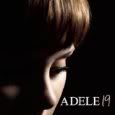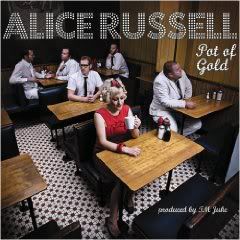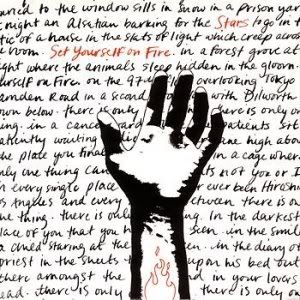Several months ago i attended a series of discussions led by Harvard theologian Gordon Kaufman. The talks, and subsequent question and answer periods followed closely ideas laid out in Kaufman's most recent book (which I do recommend)
In The Beginning... Creativity.
As best as I can, let me summarize some of what we discussed. Kaufman is an incredibly liberal thinker and has a very inticrate and carefully thought out theology. He argues that Christianity today is cuaght by language, in a sense. Today the ideas of Jesus, god, spirit, creation, etc are all caught in previous understandings and defenitions of those words, such that we are not really talking about god when we say "God" but talking about an idea that has changed and morphed over thousands of years.
Over the thousands of years we have created a standard that assumes God as a male, white, bearded guy in a big chair. It assumes divine plan and intervention. It assumes that everything that happens is all a large part of "God's plan." In contemporary times we struggle to justify the contradictions and destruction caused by a faith in this kind of god. What do you say to the abused woman about God's plan for her? What do you say to the countries full of hungry and oppressed people about God's plan?
Kaufman points out that the world we live in today was not predicted by the Bible, and therefor we need to rethink our understanding of God and the divine. A text written 2000 years ago is important to our culture and history, but not the source of all of our answers in life.
Kaufman believes that the idea of a warm, loving, conscious god are false, just as he believes that the vengeful, side-taking god is also false. In fact, putting faith on any conscious, intentionial, or creationist deity (or deities) is false.
Kaufman suggests instead of placing faith in a deity, or a dead prophet, or anything of that nature, that we look towards the notion of Creativity. He takes the famous opening of the Book of John and replaces "the word" with "creativity" and it reads thus (NRSV version): "In the beginning was
creativity, and
creativity was with god, and
creativity was god."
Kaufman takes it a step further introducing the notion of
serendipitous creativity. Kaufman's theology is based so very strongly in science that a clear answer to intelligent design is necessary. Kaufman rejects the idea of creationism, but also the ideas of any divine plan, which even people who reject conventional religion often cling to (reword).
The notion of God as creativity is an easy, and comforting notion to grasp, but reaching further and pulling away the idea that we're being watched and that there's some plan in this chaos we call reality leaves us incredibly alone. If I am to embrace the idea that there is no plan I'm stepping into a reality without hope or comfort. It leaves me asking, why have faith? Why be Christian, as Kaufman is, at all? What is the value of these cultural traditions that we uphold if there is nothing "up there" to receive them, if we are instead placing our faith in what are essentially accidents?
Kaufman's ideas are both compelling and troubling. I much prefer a faith of questions, than a religion of answers, and I'm well primed to reject divine plans, but Kaufman presents these ideas in a way that asks "Are you ready to put your money where your mouth is?" Are we ready to really embrace a theology of mystery?
What I, myself, experienced with Dr. Kaufman was a small death of the God I once knew. Even those of us who cannot place our faith in creationism, and are not hoping for miracles, even we carry the hope that there's someone with an idea of what's going on, and a direction. Someone who can tell us that it will get better, someone who has some grand plan.
But if there is no God doing just that, what is there? Why try?
I found, not an answer, but understanding through a musician out of Chicago named Andrew Bird. Many people will remember him as the talented violinist that played with the Squirrel Nut Zippers, but he has since started his own solo career of eccentric music with even stranger lyrics.
"Case In Point" off of his album
The Swimming Hour opens with the world falling apart.
I'm a breather, mail receiver, and I don't know where I stand
Not since someone informed me, that my house was build on sand
But it's not the earth beneath me, it's just a concept of the land
And I'm standing on the corner, when the buildings they all fell
If you blink once you're a goner, everything just goes pell mellThe third line is as good a poetical description of the problems Kaufman sees in the world as I can find. The religions of today are not based on reality, or earth, but concepts that have perpetuated the land for thousands of years. But my sympathies are with Bird as he describes the crumbling of what was once a more foundational reality.
It's a real hard sell, my conceptual hell
Not even good for kindling, no, when the buildings they all fellBird clearly, like Kaufman, makes a destinction of reality and a concept. Bird's reality has lost its standing, and they no longer bring him warmth, he can't burn them, or even use them for kindling as the line implies.
I'm a breather, mailer receiver, bottom feeder just getting by
And you know it's all just par for the course
But you blame it on some non-existant forceAnd here is the question and the problem, those of us getting by and putting our faith in (or heck, blaming our problems on) something that does not exist. But what follows does not give any answer to the question "Why?" but possibly understanding to the Christian or person of faith that continues to have faith even when evidence would convince otherwise.
Oh yeah, of course
You know you can't ride the concept of the horse
But still I tryAgain, there are no answers here, but a statement of intent. We have previously had faith that a greater deity has had plan and direction, which has allowed us to remain static. Bird states that it is impossible, and in my interpretation, our faith is entirely illogical, but, as Bird says, still I try. The song continues:
And I'm riding to meet you on a brown gray speckled mare
But there something that unnerves me, thinking no one really cares
And I'm jumping over fences On this obstacle course
But it seems I'm getting nowhere, on the concept of the horseOnce again, said the broken record, no answers. Bird does end the song after this with the previous "I try" refrain, but does not ignore the problem that we face. I ride the horse, but is it helping me? Am I getting anywhere at all?
Both Kaufman and Bird present a problem and an unsteady solution. There is no definite thing to cling to, and the individual is responsible for taking the forward steps. But what it does do is strips down our preconceived notions of the world and puts each individual in a position of responsibility to move forward, and not remain stagnant.








